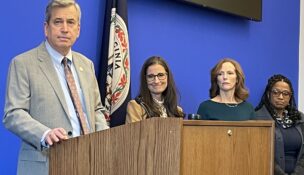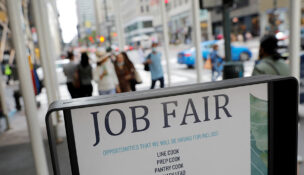Banks battle Virginia Credit Union over medical society
Kate Andrews //August 1, 2019//
Updated Aug. 8
The Virginia Credit Union has hit a roadblock in expanding its membership to include the Medical Society of Virginia’s 10,000 members — and the dispute could wind up being heard by the Virginia Supreme Court.
Seven small community banks and the Virginia Bankers Association (VBA) say the nonprofit credit union has taken a step too far by asking the state for permission to be able to offer membership to the large, statewide group of “highly educated and highly compensated” physicians and other medical professionals, taking away business from taxpaying banks with fewer assets than the credit union. Blue Ridge Bank, based in Luray, was added to the petition Aug. 5.
Virginia Credit Union Director of Public and Media Relations Glenn Birch said in a statement Thursday that the Medical Society of Virginia approached the credit union about joining and “saw membership … as an attractive benefit they could offer members located throughout Virginia and who may benefit from our products, services, access, technology and financial education resources.”
In a decision last week, the State Corporation Commission (SCC) put an immediate stay on the expansion’s approval, granted earlier in July by the state Bureau of Financial Institutions. Groups larger than 3,000 members must receive the BFI’s approval to join an existing state-chartered credit union under state law.
The state Bureau of Financial Institutions has approved “several” requests from existing state-chartered credit unions to extend membership to groups larger than 3,000 members since the legislation went into effect in 1999 but this is the first time a credit union in Virginia has sought to offer services to a group numbering more than 10,000 members, according to SCC spokesperson Kenneth Schrad.
The banks are opposed to the expansion, says VBA President and CEO Bruce Whitehurst, contending it would give the nonprofit credit union too great an advantage over community banks.
With more than $3.7 billion in assets, the Virginia Credit Union “is larger than most community banks in Virginia,” Whitehurst says. “Every one of those banks [involved in the appeal] is smaller, in some cases substantially smaller, than the Virginia Credit Union.”
The state and local governments also stand to lose tax revenue if too many people become members of non-taxpaying credit unions, he adds. (Credit unions are exempt from state and federal corporate income taxes and but they are subject to local real estate and personal property taxes and state-charted credit unions must also pay the state sales tax.)
Additionally, Whitehurst wrote in the filing, Medical Society of Virginia members already “possess copious volunteer and other resources that would enable them to establish and support a new single common-bond credit union.”
Rick Pillow, president of the Virginia Credit Union League, which supports the expansion effort, says it makes sense for the Medical Society of Virginia to seek membership in the Virginia Credit Union rather than establish its own credit union because “groups and businesses seeking to charter a new credit union face tremendous obstacles, including regulatory hurdles, the need to raise significant capital, technology costs and the fact a newly chartered credit union would be decades building a member base sufficient to offer the wide range of products and services demanded by today’s consumer.”
The Virginia Bankers Association (VBA) and six Virginia community banks requested the stay last week, granted July 25 by the State Corporation Commission. The banks were appealing a state Bureau of Financial Institutions commissioner’s decision July 12 approving the expansion. The Virginia Credit Union has until the end of business Friday to file a response, which their legal counsel is working on, a spokesman says.
The seven community banks — including Abingdon-based First Bank & Trust Co., Altavista’s First National Bank, Danville’s American National Bank & Trust Co., Windsor’s Farmers Bank, Blue Ridge Bank, Chesapeake Bank and the Bank of Charlotte County — stand to lose business because they all have customers who are currently members of the Medical Society of Virginia, Whitehurst says.
“Credit unions are expanding on the uneven playing field they enjoy,” says Steve Yeakel, president and CEO of the Virginia Association of Community Banks, which has many of the same members as the VBA and supports the banks’ petition.
Not only do credit unions avoid taxes, but their regulatory burden is “significantly lighter,” Yeakel adds. “We love competition, but fair competition should be the ideal.”
Without the stay, the expansion would have taken effect July 26, according to documents filed with the SCC.
The SCC appeal arrives on the heels of the credit union’s purchase of the Henrico County real estate firm Joyner Fine Properties, announced Wednesday. Terms of the deal were not disclosed, but the 46-year-old company employs more than 180 people at five local offices.
The VBA and the six banks have requested an appeal hearing at the end of August, which would ordinarily be heard by the SCC’s three-judge panel. However, Judge Mark Christie, who is in his third six-year term as a commissioner and the SCC’s current chairman, has recused himself, although Whitehurst said he didn’t know why. If either side decides to appeal the panel’s decision, the case would go to the Virginia Supreme Court.
When credit unions were signed into federal law in 1934, Whitehurst said, they were meant to serve people of “modest means” who weren’t welcomed at traditional banks. However, a loosening of the rules by the U.S. Congress in 1998 has allowed credit unions more latitude in expanding their charters and offering broader membership than before.
The Medical Society of Virginia’s CEO and executive vice president, Melina Davis-Martin, who could not be reached for comment, was listed as a nonvoting associate director on the Virginia Credit Union’s board in its 2018 annual report, which was released at the end of the year.
In the end, adds Birch, “approval of the application simply means that membership in Virginia Credit Union becomes an option that individual members of the [Medical Society of Virginia] would be free to consider, based on their own financial circumstances and convenience.”
Birch declined to comment on whether the credit union would pursue the case to the state’s high court, and Whitehurst said, “I’m not going to jump ahead. We’re very focused on this appeal.”
F

















